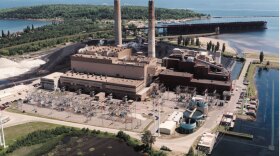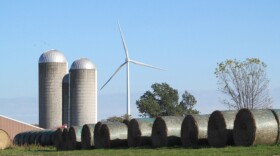In his State of the State address this week, Governor Snyder said we need a long-term energy policy.
“It needs to be an adaptable policy, because of the lack of federal policy and the challenges of a global marketplace," he said. "We need to focus on important things such as eliminating energy waste, and the conversion from coal to natural gas—an asset of the state of Michigan—and renewables."
In Michigan, we have cut back on the amount of coal we burn for electricity, and more cuts are coming.
Gerry Anderson, chairman and CEO of DTE Energy, said new regulations are driving the change.
"I expect that we will over the next 10-15 years, retire 50% to 60% of the coal-fired generation in the state ..."
“Primarily at the EPA, there are new environmental regulations that will fundamentally reshape the way we generate electricity in Michigan. And I expect that we will over the next 10-15 years, retire 50% to 60% of the coal-fired generation in the state and replace that with a mix of renewable energy and natural gas-fired, both of which are lower emitting, including carbon emissions,” says Anderson.
Gov. Snyder also called for the creation of a new energy agency. He says he wants to put all the state’s energy experts under one roof.
James Clift, the policy director of the Michigan Environmental Council, says the Environmental Protection Agency’s proposed Clean Power Plan to cut carbon emissions from power plants has shaken up the regulation of utilities.
"They’re really being forced to consider the environmental impacts of the production of energy in a new and different way that they haven’t in the past, and they realize, both in Michigan and across the country, there has to be really good coordination through your Environmental Protection Agency and your regulators to make sure that we’re going to achieve the requirements of those new rules,” said Clift.
Clift says the easiest way to comply with EPA’s plan is to close some of the old coal plants, and build new natural gas and renewable assets to replace them. He says we also need to focus on becoming more energy efficient.
Dan Bishop is a spokesman for Consumers Energy. He says his company is planning to retire its seven oldest coal plants by April 2016.
“Right now, federal and state regulators are indicating we’ve got an electricity shortfall in the state in 2016 as a result of these power plant retirements. So, insuring electric reliability going forward and building that new generation of clean-burning power plants is really essential,” says Bishop.
You can hear more in today’s Environment Report above.






